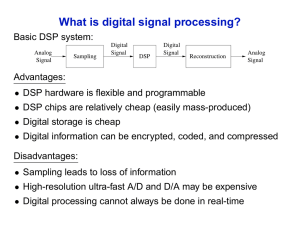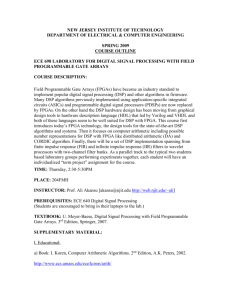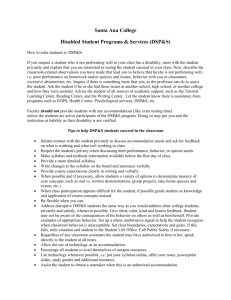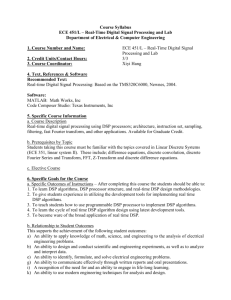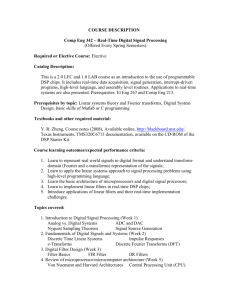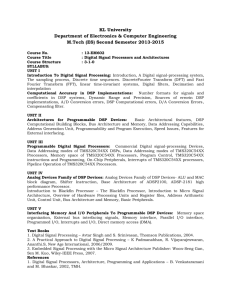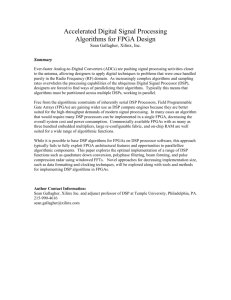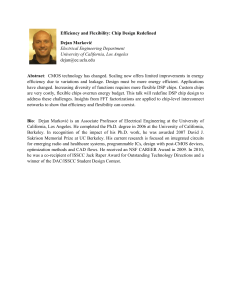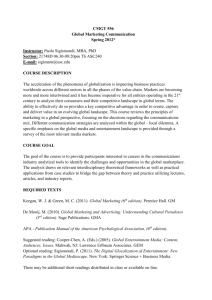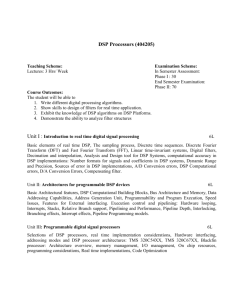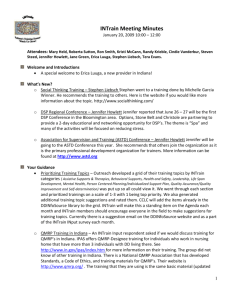What is digital signal processing? Basic DSP system: Advantages
advertisement
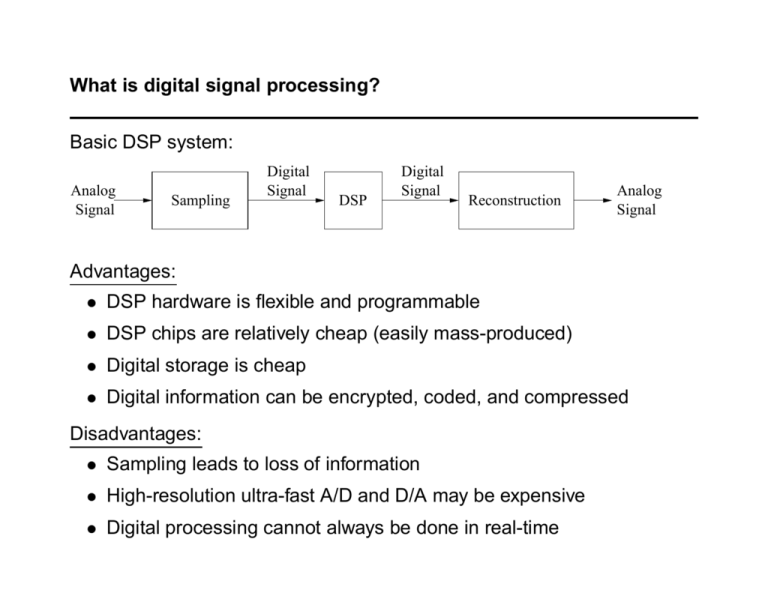
What is digital signal processing? Basic DSP system: Analog Signal Sampling Digital Signal DSP Digital Signal Reconstruction Analog Signal Advantages: • DSP hardware is flexible and programmable • DSP chips are relatively cheap (easily mass-produced) • Digital storage is cheap • Digital information can be encrypted, coded, and compressed Disadvantages: • Sampling leads to loss of information • High-resolution ultra-fast A/D and D/A may be expensive • Digital processing cannot always be done in real-time Applications of DSP • Digital Audio and Video − compact discs − Dolby recording − HDTV − JPEG, MPEG • Speech systems − recognition − synthesis • Industrial − noise cancellation − manufacturing control • Biomedical − ultrasound − hearing aids • Telecommunications − wireless phones − DSL, cable modems • Science − speech pathology − gene research • Sonar and radar − surveillance systems − oceanography DSP is a multi-billion dollar business DSP is a major driver for the semiconductor industry Chip market was 11.1 billion worldwide in 1999 (just for hardware!) • 1.0% DSP building blocks • 2.9% media processors • 39.5% programmable DSP’s • 56.6% function-specific DSP’s Examples of function-specific DSP chips: • Cable modem chips • Digital camera chips • Digital hearing aids • DVD decoders • MP3 player chips Source: “Digital Signal Processing: The New Semiconductor Industry Technology Driver,” Will Strauss, IEEE Signal Processing Magazine, March 2000, pp. 52-56. Foundations of DSP What do you have to know to start working on DSP? • Fluent in mathematics • Thorough understanding of sampling and its consequences • Knowledge and appreciation of signal transforms • Basic spectral analysis tools: DFT/FFT • Ability to implement simulations in software such as Matlab • Understanding of the science, mathematics, and/or engineering behind a particular application What will ECE 535 cover? ⇒ ECE 535 • Syllabus − Review of DT signals & systems − DT processing of CT signals − Discrete Fourier series & discrete Fourier transform − Filter design − Implementation issues − Advanced topics • Course information sheet − Website − Required textbooks and software − Grading and policies − Office hours • Makeup classes ⇒ Questions?

